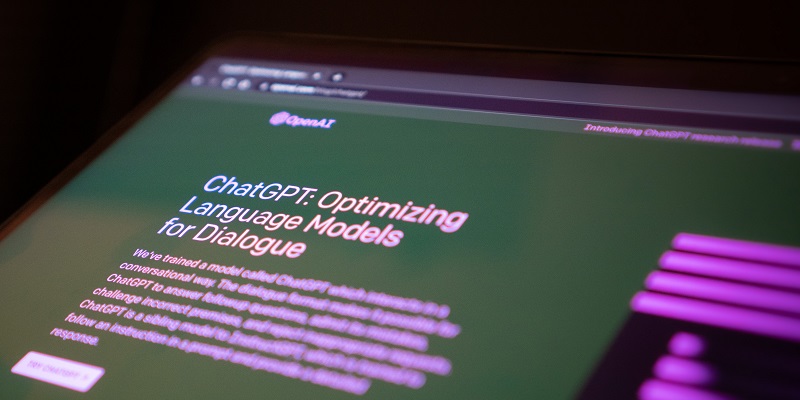ChatGPT has revolutionized the world of AI interactions, allowing users to engage in meaningful conversations with an advanced language model. However, to further enhance the user experience and make interactions more relevant and personalized, OpenAI has introduced the innovative feature of Custom Instructions. By providing users with the ability to set specific instructions, ChatGPT can now cater to individual needs and preferences, creating dynamic and engaging conversations.
Enabling users to tailor interactions according to their needs and preferences
One of the key advantages of Custom Instructions is that it allows users to take control of their interactions with ChatGPT. By specifying their unique requirements, users can now guide the AI model’s responses to generate more relevant and personalized outputs. Whether someone is a student seeking homework help, an aspiring writer brainstorming ideas, or a curious mind exploring various topics, Custom Instructions empower them to get the most out of their interactions with ChatGPT.
Enhancing the relevance and dynamism of conversations
Gone are the days of receiving generic or off-topic responses from AI models. With Custom Instructions, ChatGPT can now consider the user’s specific instructions in every subsequent interaction. This eliminates the need to repeat instructions, creating a seamless and fluid conversation. The result is a more dynamic and engaging experience where the AI truly understands and responds to the user’s unique requirements.
Homework help for students
Students can now benefit from ChatGPT’s vast knowledge and expertise by providing custom instructions related to their specific homework questions or problems. By tailoring the interactions, students can receive accurate and helpful responses tailored to their academic needs, ultimately aiding in their learning and understanding.
Brainstorming ideas for aspiring writers
For writers in need of inspiration and creative assistance, Custom Instructions offers invaluable support. By providing specific prompts or directions, writers can engage with ChatGPT to generate unique ideas, plotlines, or character developments, ultimately assisting in the creative writing process.
Custom Instructions enable users with a thirst for knowledge to delve into specific subjects or explore complex topics. By setting instructions related to their areas of interest, users can engage in conversations with ChatGPT that cater to their curiosity, expanding their understanding and engaging in intellectually stimulating discussions.
Eliminating the need to repeat instructions
By incorporating Custom Instructions, ChatGPT streamlines the user experience. Once users provide their initial instructions, the AI model will consider them in every subsequent interaction. This eliminates the need for users to repeatedly remind ChatGPT of their preferences or requirements, making the conversation more efficient and enjoyable.
Integration with ChatGPT plugins for accurate and contextual interactions
ChatGPT’s plugins offer additional functionality and specialized knowledge in various domains. With the integration of Custom Instructions, these plugins become even more valuable. By synergizing with the user’s tailored instructions, ChatGPT can interact more accurately and contextually, providing more precise and relevant information or assistance.
Adapting safety measures for a secure environment
OpenAI recognizes the importance of maintaining a secure environment for all users. With the introduction of Custom Instructions, OpenAI has adapted its safety measures to ensure that the interactions stay within ethical and responsible boundaries, protecting users from any potential harm.
Identification and Disregard of Instructions Violating Usage Policies
While Custom Instructions offer flexibility, there are certain usage policies that must be followed to maintain a safe and respectful environment. OpenAI’s systems are designed to identify and disregard any instructions that violate these policies, ensuring that the AI model remains within ethical boundaries.
Managing data settings and preferences
OpenAI recognizes the significance of user control. Users have the ability to manage their data settings, including selecting which data is used to personalize their experience. This enables users to customize their interactions based on their personal preferences and comfort levels.
Opting out of the Custom Instructions feature
For users who prefer not to use the Custom Instructions feature, OpenAI provides the option to opt out. This ensures that users have control over their interactions and can choose the level of customization they desire.
Plans to expand access for free plan users in the EU and UK
OpenAI is committed to inclusivity and expanding access to its innovative features. In the near future, Custom Instructions will be made available to free plan users in the European Union and the United Kingdom, ensuring that a wider audience can benefit from this powerful tool.
Improved performance through Custom Instructions
By incorporating Custom Instructions, ChatGPT’s performance is significantly enhanced. The AI model can now take into account specific instructions, resulting in more accurate and tailored responses. This leads to a more satisfying user experience and improved outcomes.
OpenAI recognizes the importance of user feedback in refining and improving the capabilities of ChatGPT. The introduction of Custom Instructions allows for gathering valuable insights and data on user preferences and requirements, which OpenAI can leverage to continually enhance the AI model’s performance and personalization.
Custom Instructions empower users to tailor their interactions with ChatGPT according to their unique needs and preferences, making conversations more dynamic and relevant. By eliminating the need to repeat instructions and integrating with ChatGPT plugins, the AI model offers an improved user experience with accurate and contextual responses.

